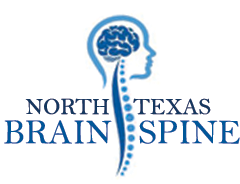Brain tumors can be classified in a lot of different ways. Read about some of them here:
Brain Tumors
What are Tumors?
A brain tumor is an abnormal growth that occurs due to uncontrolled cell multiplication. The presence of brain tumors can affect the normal structure and activities of the brain in many ways, including increasing pressure on the brain or skull, blocking structures, or damaging nerves and tissue.
Brain tumors are most often classified by their origin or how they grow. Regardless of classification, any brain tumor has the potential to become life-threatening if left untreated.
When classifying by origin, the terms used are Primary and Metastatic.
- Primary tumors are those located at the site where the tumor began to grow or originated, meaning primary brain tumors rarely spread to other areas. Primary brain tumors can be further classified as glial tumors and non-glial tumors. Glial tumors are also called gliomas.
- Metastatic, or secondary, tumors are those that have spread to other parts of body from the original tumor site.
When classifying by rate of growth, the terms used are Benign and Malignant.
- Malignant, or cancerous, tumors tend to keep growing despite treatment and can become life threatening.
- Benign, or non-cancerous, tumors tend to grow slower than malignant tumors. Depending on their location in the brain, benign tumors can often be cured by treatment or removal, but they can still cause serious issues if left untreated.
Causes of Brain Tumors
A tumor is an abnormal growth caused by abnormal cell multiplication that does not serve any physiological function. Cell division is regulated by the tumor suppressor genes. These genes also help to repair any damage caused to the DNA. Tumor suppressor genes are constantly at war against the cancer-causing genes called oncogenes. When tumor suppressor genes fail to function properly due to mutations that affect protein encoding, unregulated cell division and growth can occur and cause the development of a tumor.
The body's natural defense system should optimally detect the abnormal cells and kill them. But tumors may produce substances that obstruct the immune system from recognizing the abnormality of tumor cells and eventually the tumor cells may overpower all internal and external checks to their growth.
Certain types of radiation exposure and genetic disorders have been linked with brain tumors. Although some environmental factors are suspected of contributing to the development of tumors, doctors do not know many of the risk factors of many types of tumors yet.
Symptoms of Brain Tumors:
There are many different kinds of brain tumors, so the symptoms will vary depending on the specific type, size, and location of the tumor. Some of the more common symptoms of brain tumors include:
- Headaches are one of the most common symptoms of brain tumors. Specifically, headaches upon waking, non-migraine headaches accompanied by vomiting, headaches accompanied by double vision, numbness, or weakness, and headaches accompanied by neck pain.
- Seizure
- Changes in personality or behavior
- Changes in mental function, which could include memory loss, confusion, speech difficulty, or impaired concentration or reasoning
- Increase in sleeping time
- Gradual loss of movement or sensation in arms or legs, balance problems
- Difficulties with speech and comprehension
- Visual problems or changes
Diagnosis of Tumors
Your doctor will perform a neurological exam to test your mental and physical functioning. During this exam, faculties including your eyes, ears, nose, muscles, sensations, balance, coordination, mental state and memory may be tested. If the results are abnormal, imaging studies may be used to give a clearer image of the brain. Tests performed may include magnetic resonance imaging, or MRI, computed tomography, or CT, and biopsy to examine a sample of tissue from the tumor.
Treatment Options for Brain Tumors
If the tumor is static or growing slowly and does not cause pressure on the adjacent brain tissue, conservative therapy may be utilized. Patients are closely monitored on a regular basis with MRI scans and if the tumor grows or the patient develops symptoms related to it, treatment is started.
If the tumor is growing fast, or is life threatening, definitive therapy may be utilized. This can include more aggressive treatment techniques such as surgery, radiation therapy, or chemotherapy. Biopsies and surgical treatment of brain tumors generally require a craniotomy.




